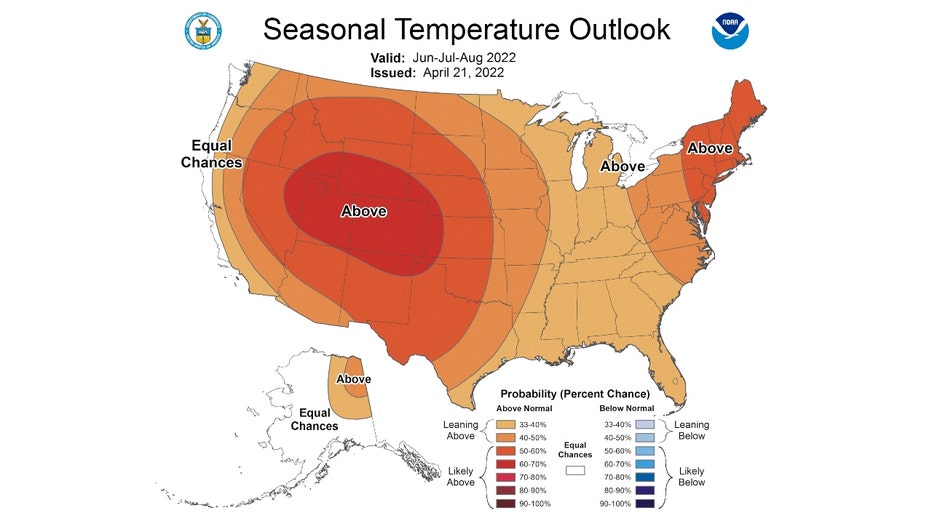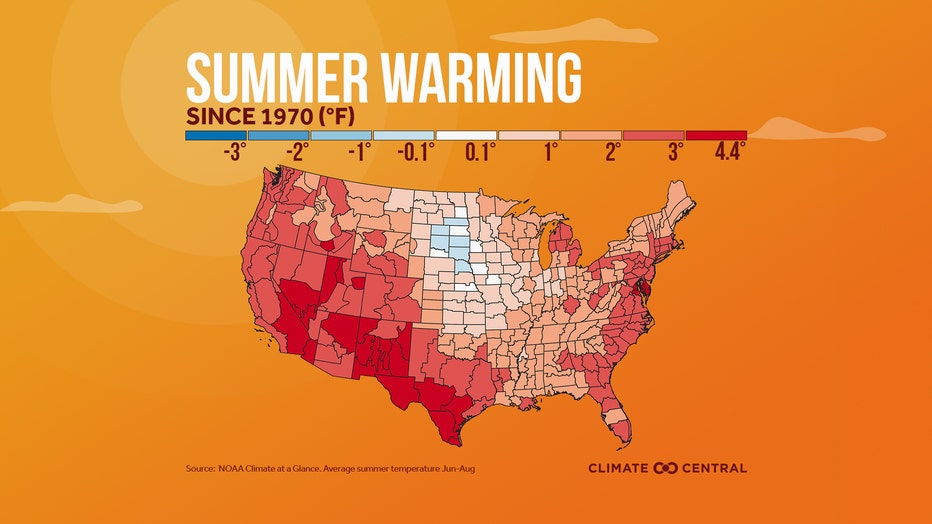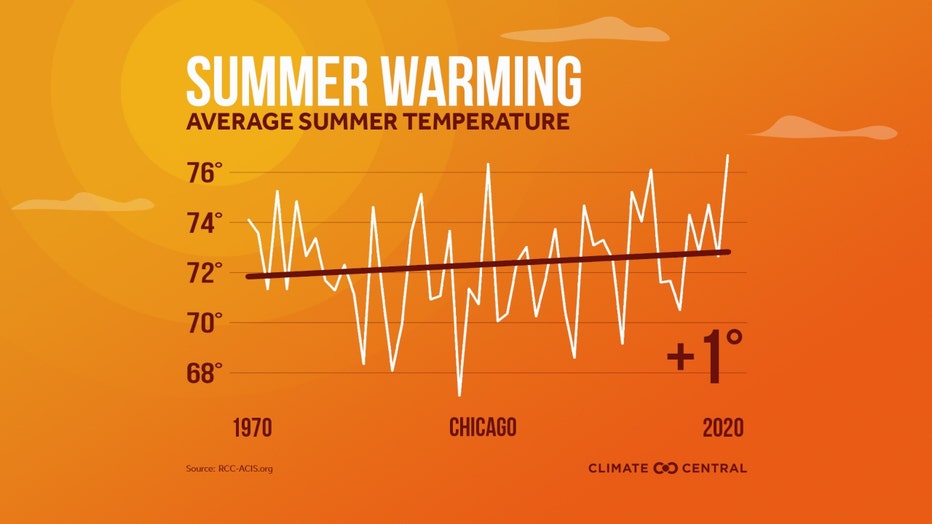Get set to sweat this summer in Chicago
Chicago - We had a taste of summer on Saturday when the high at O'Hare soared to 84 degrees. It was 22 degrees above average and the hottest day in nearly seven months. The last time we were hotter than that was back on October 1st of 2021 when the high hit 85 degrees. To say it felt just like July on Saturday is no exaggeration.
The Climate Prediction Center just updated their seasonal temperature outlook for June through July and it looks like this summer could really sizzle. The vast majority of the United States is outlooked for an above average summer. There is a small portion of the West Coast that has "equal chances" of being either above or below average. There isn't one portion of the US that is forecast to be below normal.

The average high temperature for Chicago in June is 80.4 degrees, 84.5 degrees in July and 82.5 degrees in August.
Chicago's forecast is "leaning above" normal. The highest probability for a hotter than normal summer is in the western half of the country, especially the central Rockies where the forecast is for a "likely above" normal summer of 2022. The New England area also has a high probability for an above average summer.
It was just two years ago we experienced Chicago's hottest summer on record. The summer of 2020 tops the list. Eight of the hottest twenty-five summers on record for Chicago have occurred here since 2002.
Climate change is tipping the scales in favor of hotter summers. A recent study concluded "people born in 2020 will have to face between two and seven times more extreme climate-related events over their lifetimes than people born in 1960, according to estimates from a new study".

ClimateCentral.org
Climate Central analyzed the summer temperature trend between 1970 and 2021 for 246 U.S. locations. They found that nearly 95% of those locations had an increase in their average summer temperatures with half of them increasing by 2 degrees or more.

Chicago saw a bump of 1 degree in its average summer temperature during that 51-year period. A significant increase from a climatological standpoint. The warming was most significant at night. Chicago's nights warmed by almost 2 degrees during the summer.

